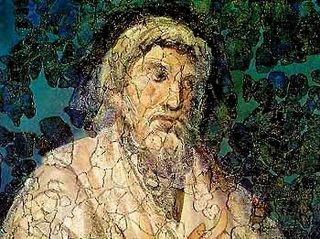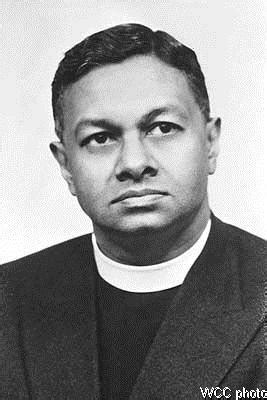A Quote by Lactantius
For if God is a title of the highest power, He must be incorruptible, perfect, incapable of suffering, and subject to no other being; therefore they are not gods whom necessity compels to obey the one greatest God.
Related Quotes
The chief difficulty is that God demands of us that we live by faith: faith in God, God's sovereignty over the future, God's sufficiency for the present; while, on the other hand, the various other gods whom we can serve appeal to us in terms of the things which we can see and the forces which we can calculate. The choice between the life of faith and the life of sight is a choice between a God whom only faith can apprehend and gods whom one has only to see to understand.
The true God is not a form idealized; he/she/it is real and therefore, by definition, imperfect; only an abstraction can be free of flaws. And since God is imperfect, there will be suffering.... There is no perfect God. And your suffering requires no more explanation than that unavoidable imperfection.
There are two gods. The god our teachers teach us about, and the God who teaches us. The god about whom people usually talk, and the God who talks to us. The god we learn to fear, and the God who speaks to us of mercy. The god who is somewhere up on high, and the God who is here in our daily lives. The god who demands punishment, and the God who forgives us our trespasses. The god who threatens us with the torments of Hell, and the God who shows us the true path.
There are two gods. A god who casts us off because of our sins, and a God who calls to us with His love.
God cannot suffer - at least not as we do. It has some roots in Greek philosophy: if God is a perfect being, suffering would reduce that perfection, so God cannot suffer. More thoughtful theologians take the phrase in the sense of one of the confessions of faith that talks of God as being "without parts or passions" - he is not physical as we are, and not subject to "passions" in the sense of uncontrollable emotions that can take charge of us at times. God is not "emotional," if that word is used as some kind of weakness.
Believers obey Christ as the one whom our obedience is accepted by God. Believers know all their duties are weak, imperfect, and unable to abide in God's presence. Therefore they look to Christ as the one who bears the iniquity of their holy things, who adds incense to their prayers, gathers out all the weeds from their duties and makes them acceptable to God.
God is goodness itself, in whom all goodness is involved. If therefore we love other things for the goodness which we see in them, why do we not love God, in whom is all goodness? All other things are but sparks of that fire, and drops of that sea. If you see any good in the creature, remember there is much more in the Creator. Leave therefore the streams, and go to the fountainhead of comfort.
Our obedience is God's pleasure when it proves that God is our treasure. This is good news, because it means very simply that the command to obey is the command to be happy in God. The commandments of God are only as hard to obey as the promises of God are hard to believe. The Word of God is only as hard to obey as the beauty of God is hard to cherish.
God is not a person; God is manifestation itself. We think that God is a superhuman person, but God is not a person. He is not a subject. We can never experience God in a subject/object experience. God is what makes a subject/object experience possible. We can never see God or experience God as separate from ourselves. God is a being but there is no division.
Most people in the world believe that if there is a God, you relate to God by being good. Most religions are based on that principle, though there are a million different variations on it...But they all have the same logic: If I perform, if I obey, I’m accepted. The gospel of Jesus is not only different from that but diametrically opposed to it: I’m fully accepted in Jesus Christ, and therefore I obey.

































